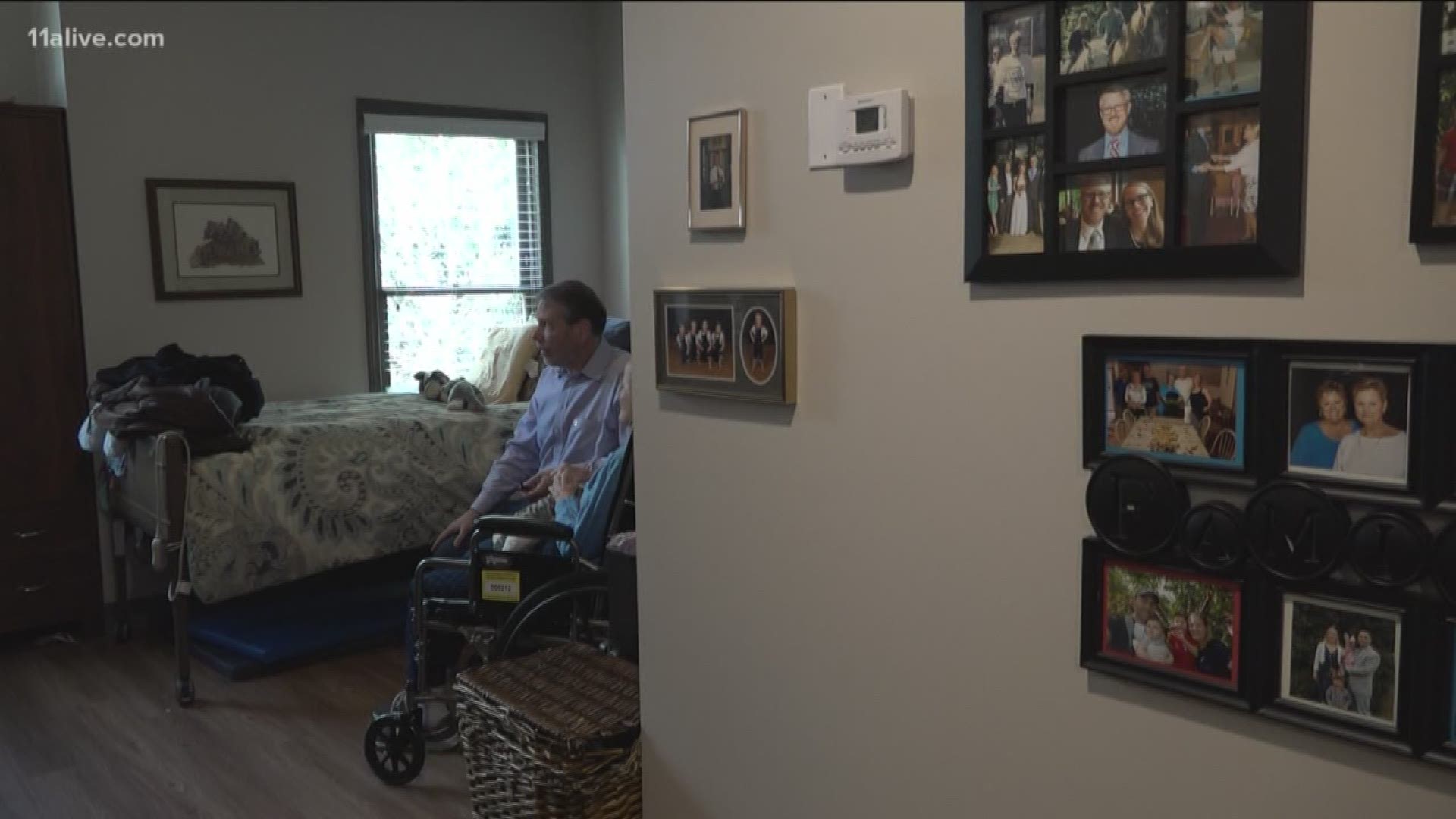A new report from the Alzheimer’s Association finds that the number of people dying from the disease in Georgia continues to grow and patients are depending more than ever on family to help take care of them.
According to the Georgia chapter of the Alzheimer’s Association, about 150,000 people in the state have the disease and 533,000 caregivers have provided 607 million hours of unpaid care this year alone, valued at $7.6 billion.
“The Alzheimer’s burden continues to grow," said Dr. Joanne Pike, the chief program officer for the Alzheimer’s Association. “The fact is, the disease statistics are trending in the wrong direction.”
While deaths for most other diseases have dropped, the number of people dying by Alzheimer’s continues to grow by an alarming 145 percent nationwide since 2000. Georgia has seen a 248 percent increase in Alzheimer’s deaths since 2000, according to the report. In 2017, 4,298 people died in Georgia from Alzheimer’s. The disease is the sixth leading cause of death in the United States and nearly one in three seniors who dies every year has dementia, or Alzheimer’s.
In addition, researchers found the costs of caring for an Alzheimer’s patient are unsustainable. The cost to care for patients in Georgia is expected to reach $1.1 billion and grow by 33.5 percent by 2025.
Pike said there is a disconnect between doctors and their patients about who is responsible for bringing up questions of cognitive ability.
“Our survey found a troubling disconnect between seniors and physicians regarding who is responsible for initiating cognitive assessments,” Pike said. “A large number of seniors expect their physician to bring up the topic with the about what their concerns could be. Physicians are waiting for seniors to bring up the topic about their memory and thinking.”
Over 5 million Americans are living with the disease nationwide, and experts said that by 2050, nearly 14 million people will have the disease.
Pike said it is important for seniors to monitor their cognitive ability the same way they watch their cholesterol, vision and hearing.
“The most important takeaway is, physicians and citizens need to be more proactive during their annual wellness visit to make sure a cognitive assessment is included,” Pike said. “There are benefits to early diagnosis that could include participating in clinical trials that advance research and science, along with working with family on financial issues or legal outcomes you want to see happen.”
Another major step in preparing for an Alzheimer’s diagnosis is to make the connections you want to make before the brain begins to change, Pike said.
“It gives you a chance to prioritize who you spend your time with, and the things you do that bring you joy,” she said.

